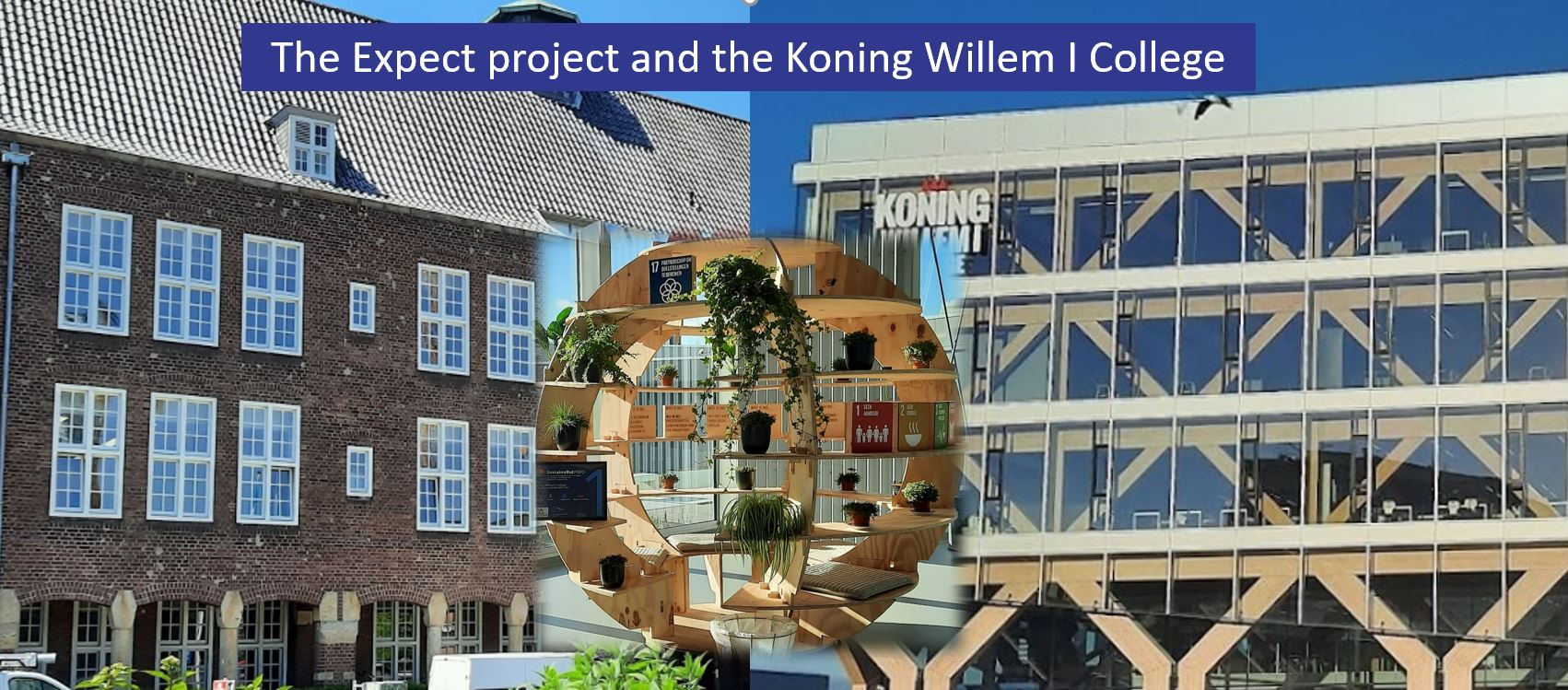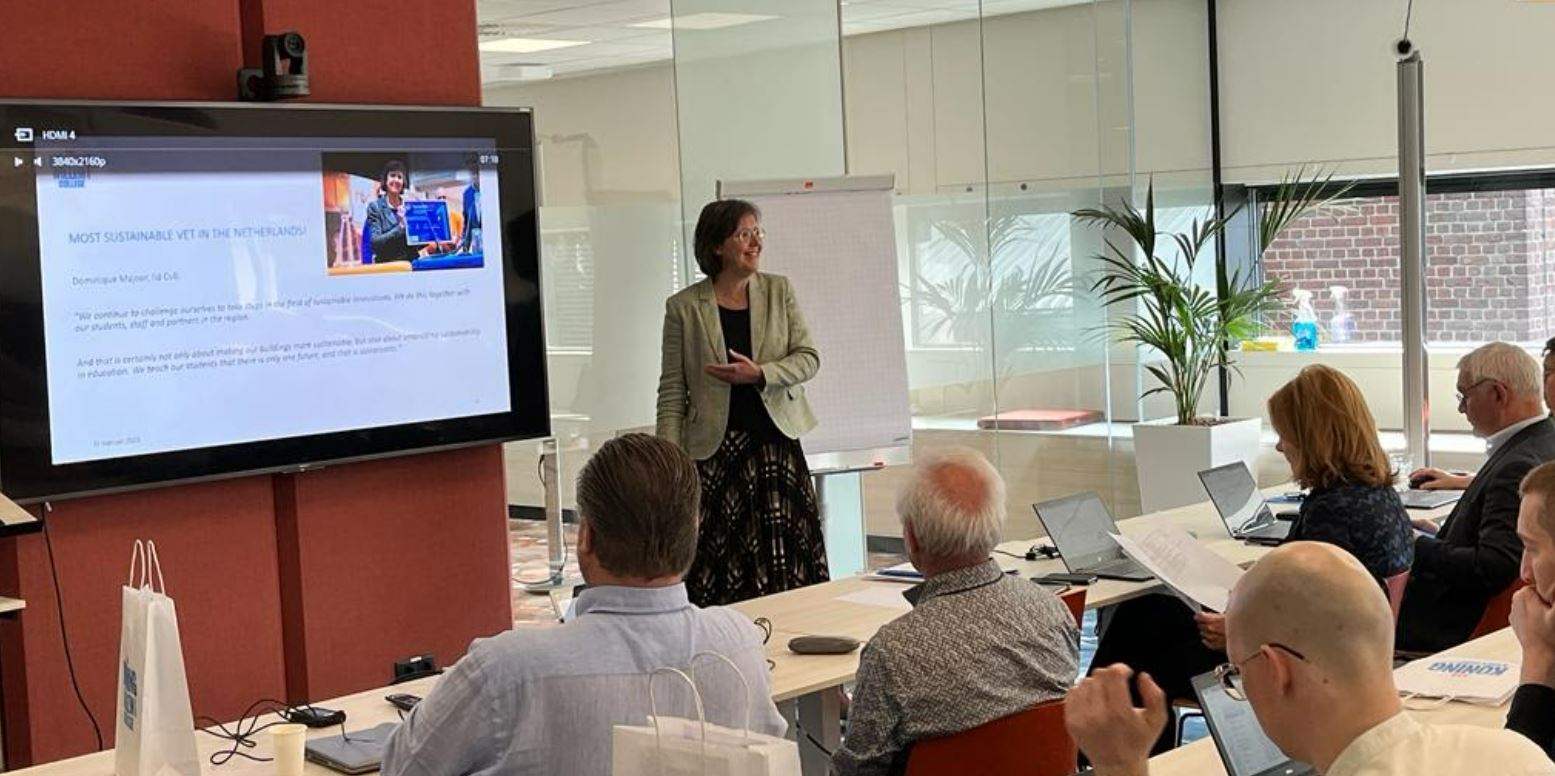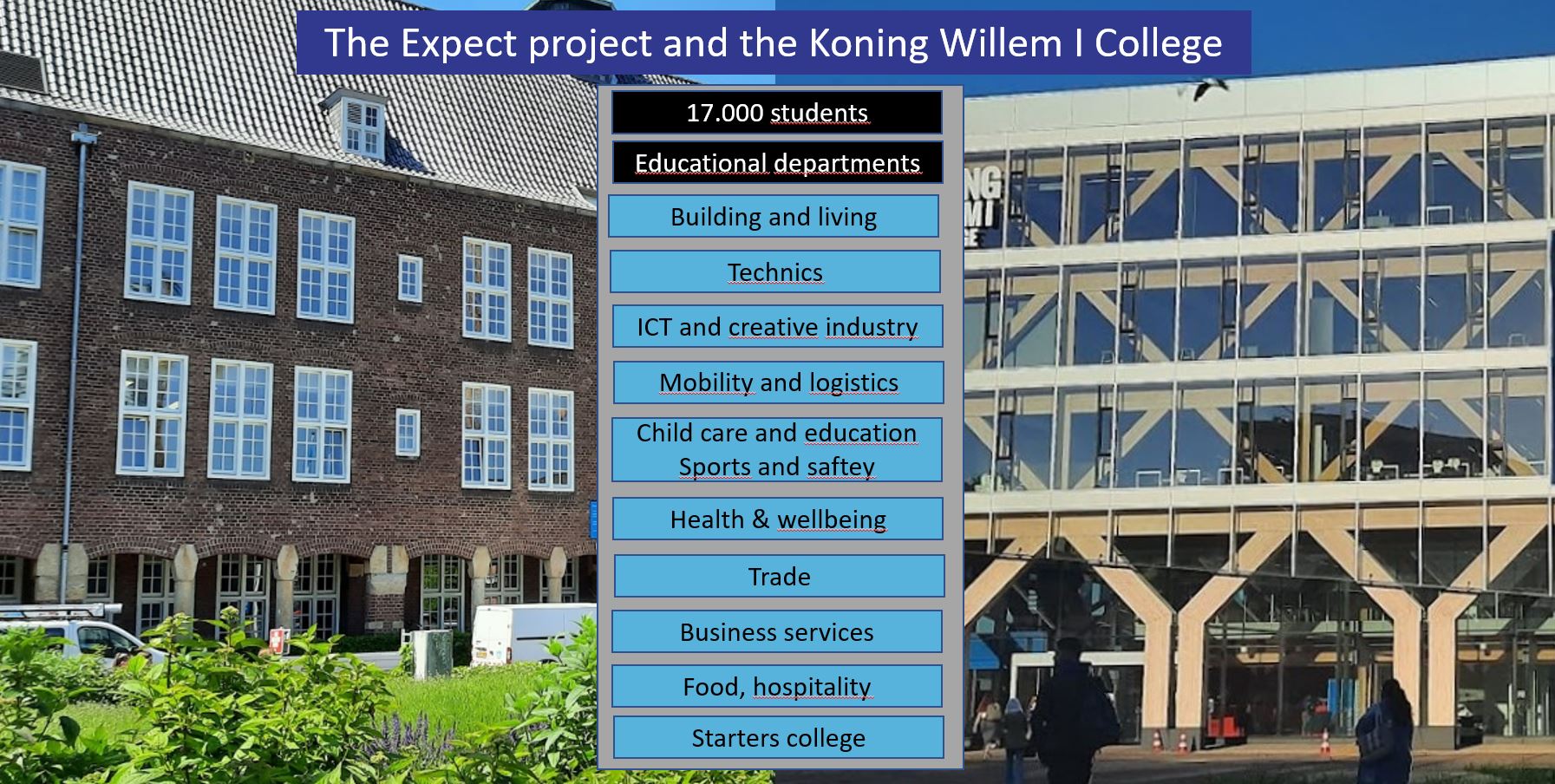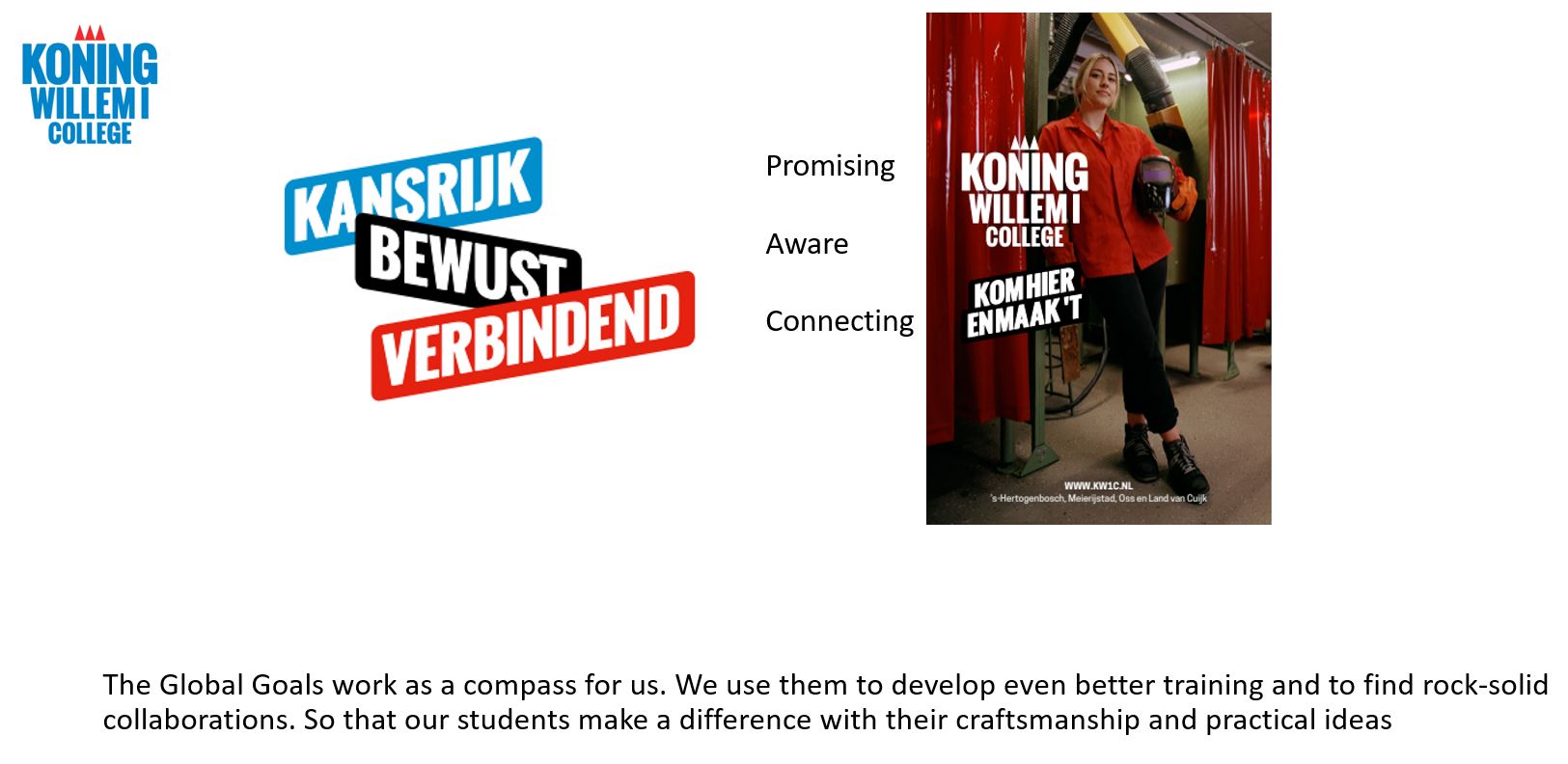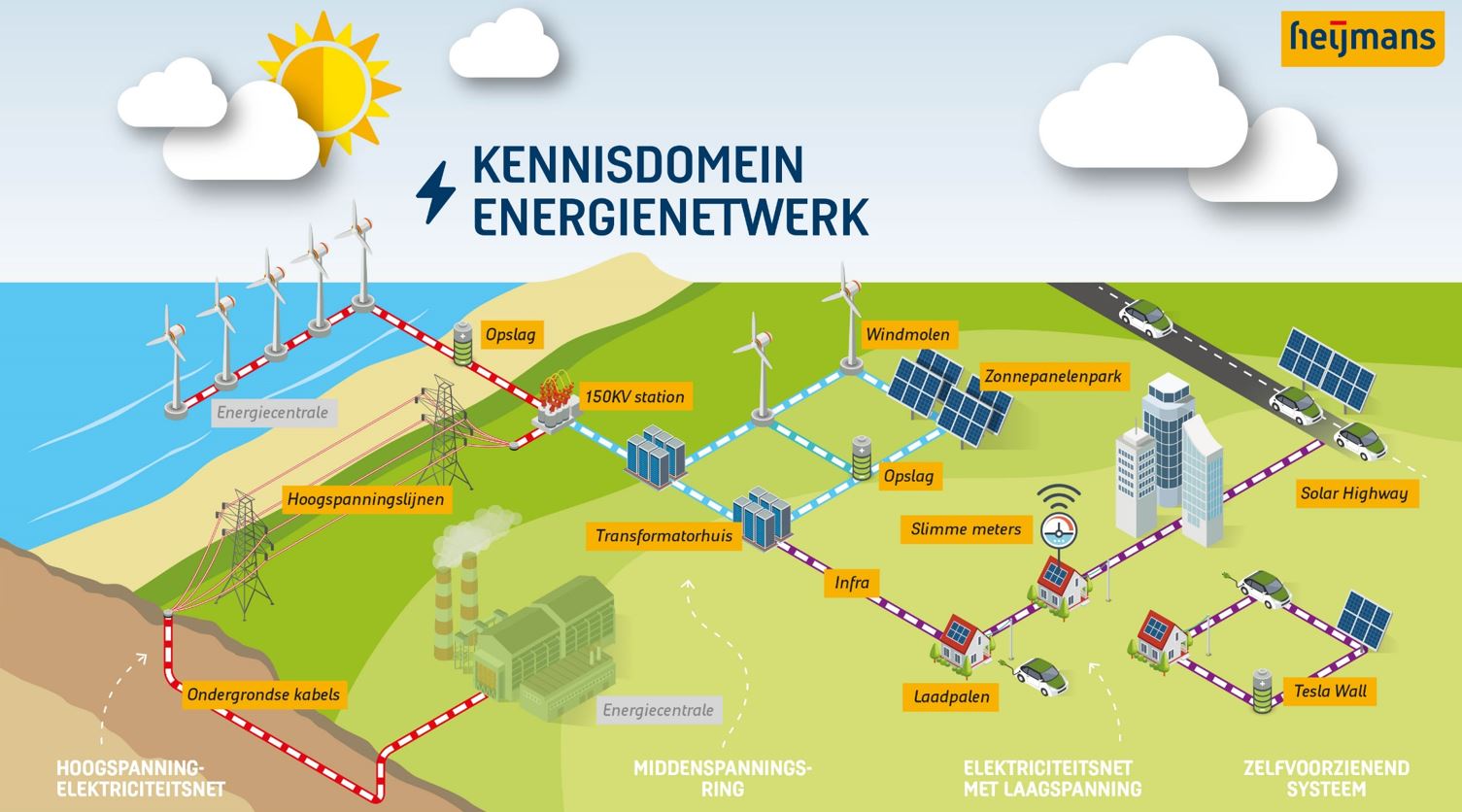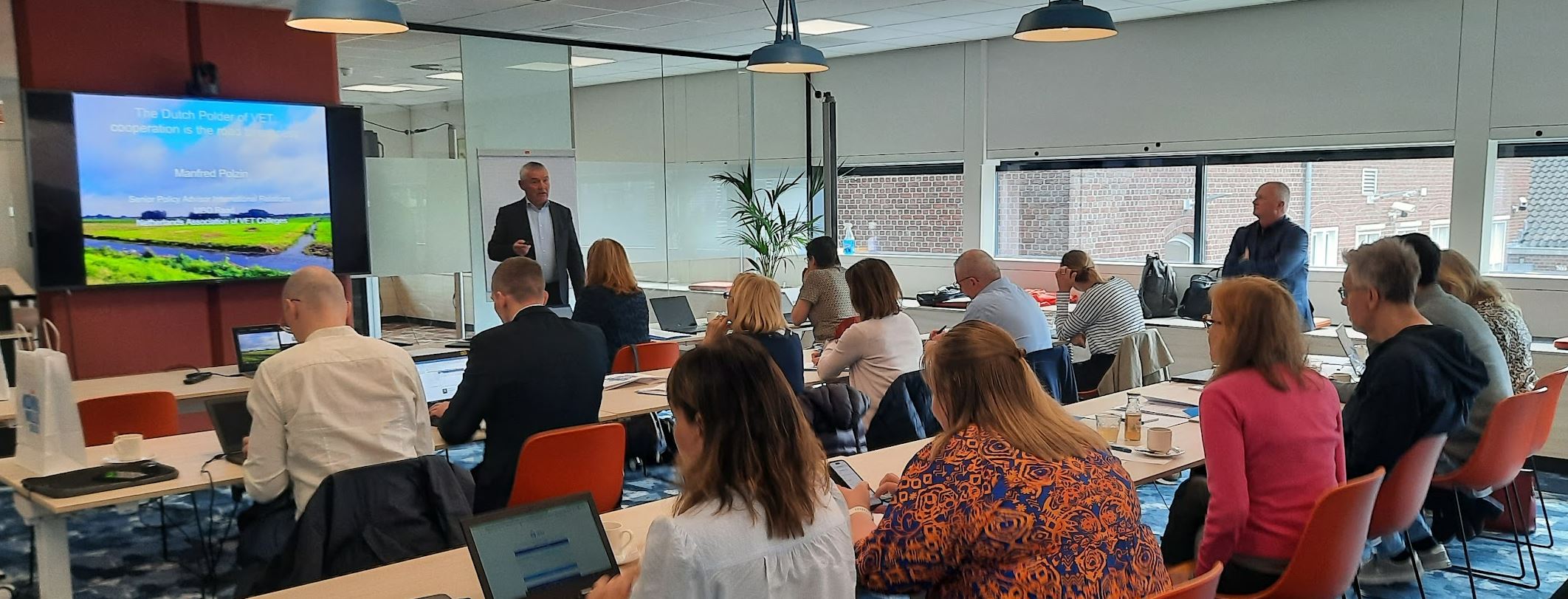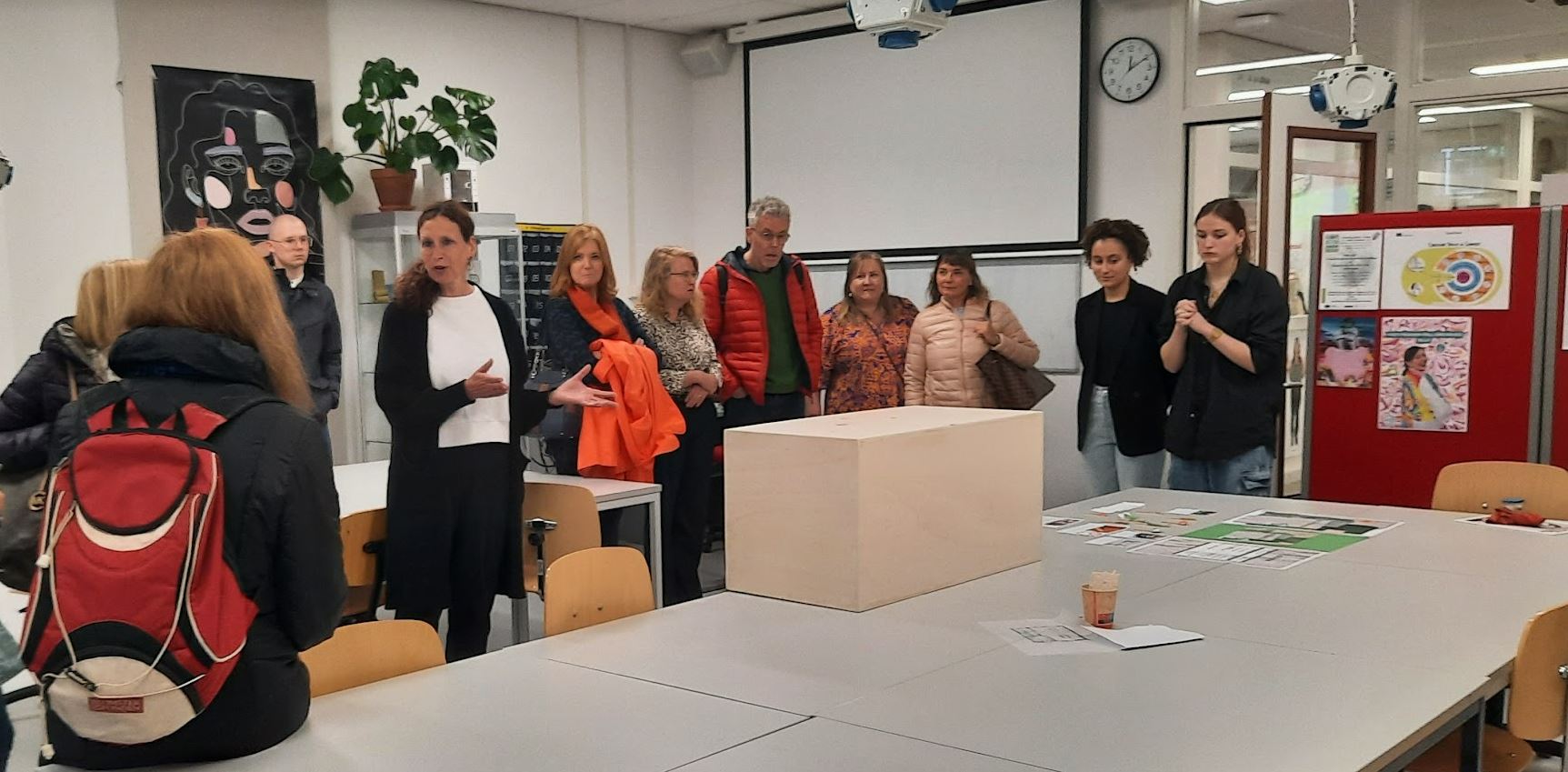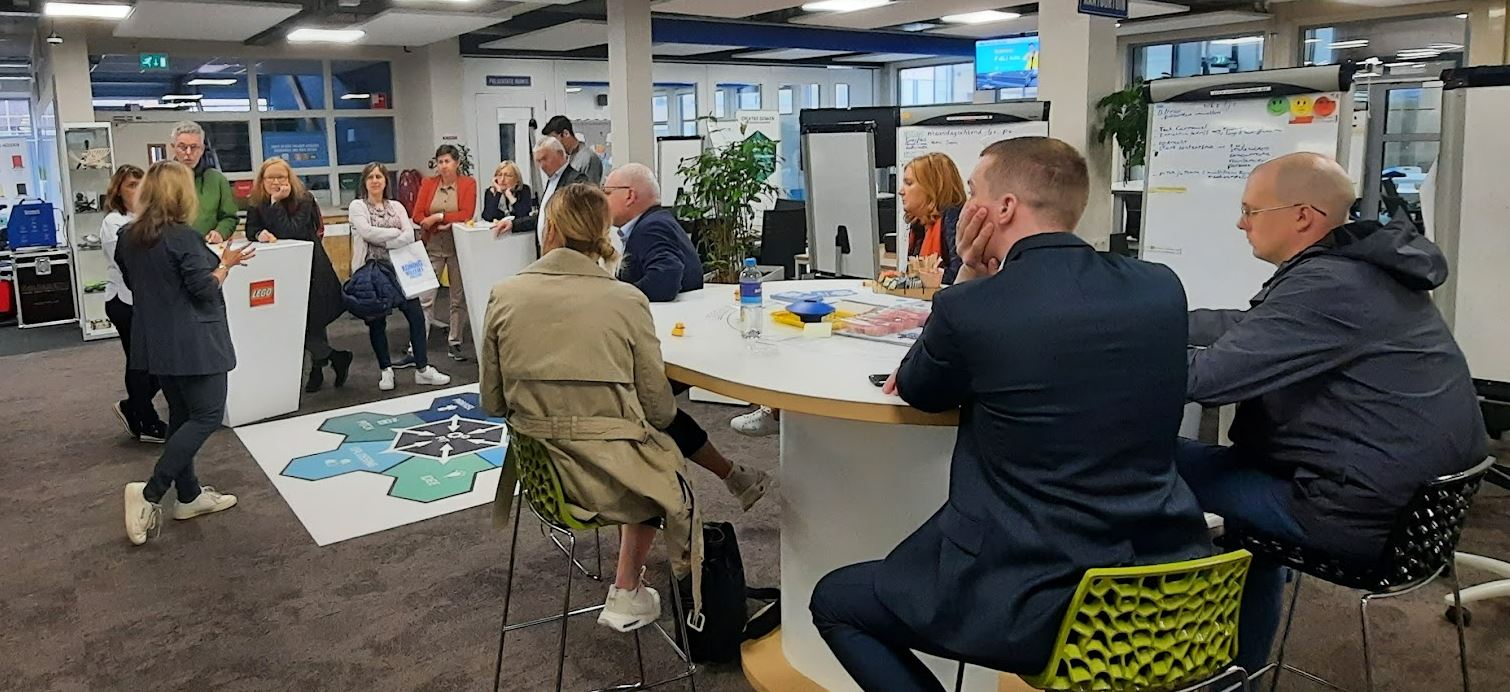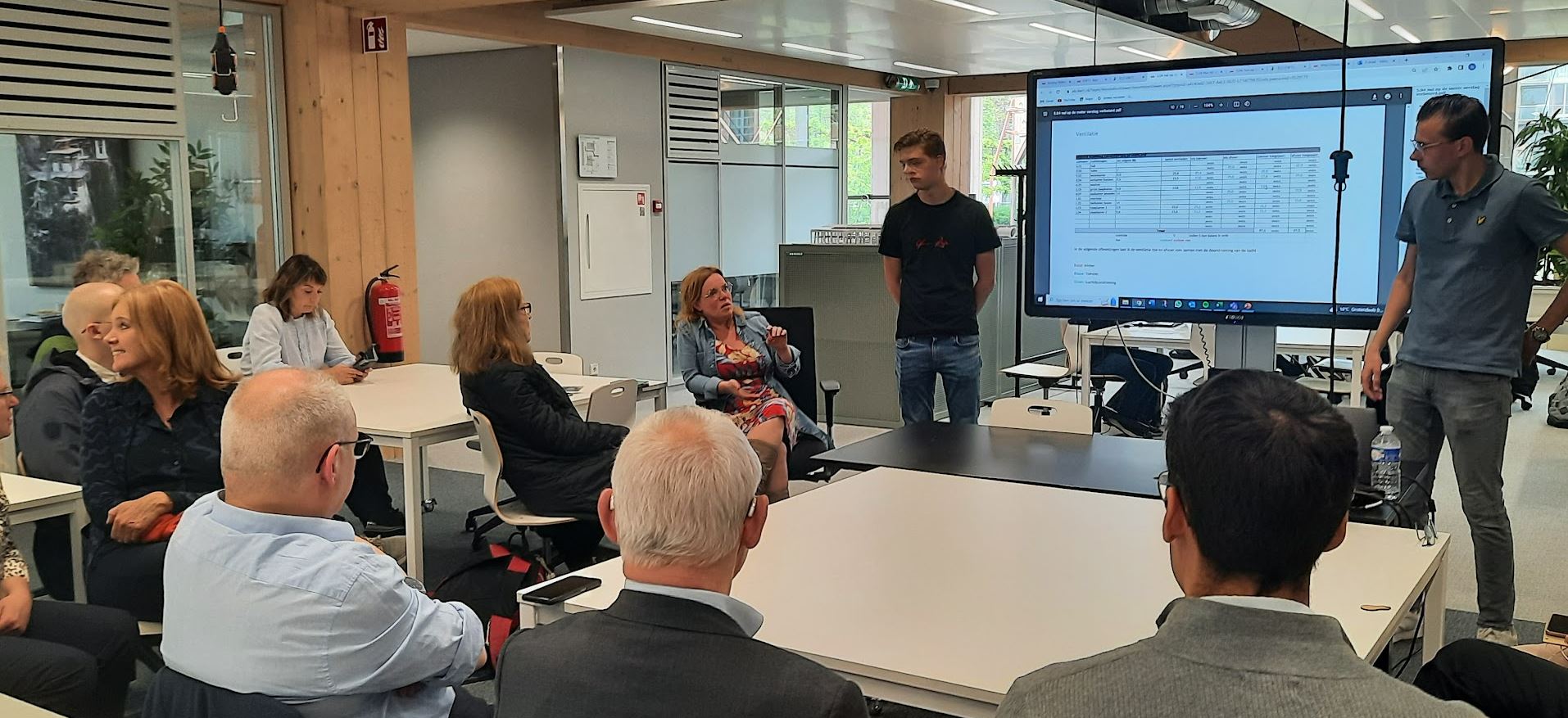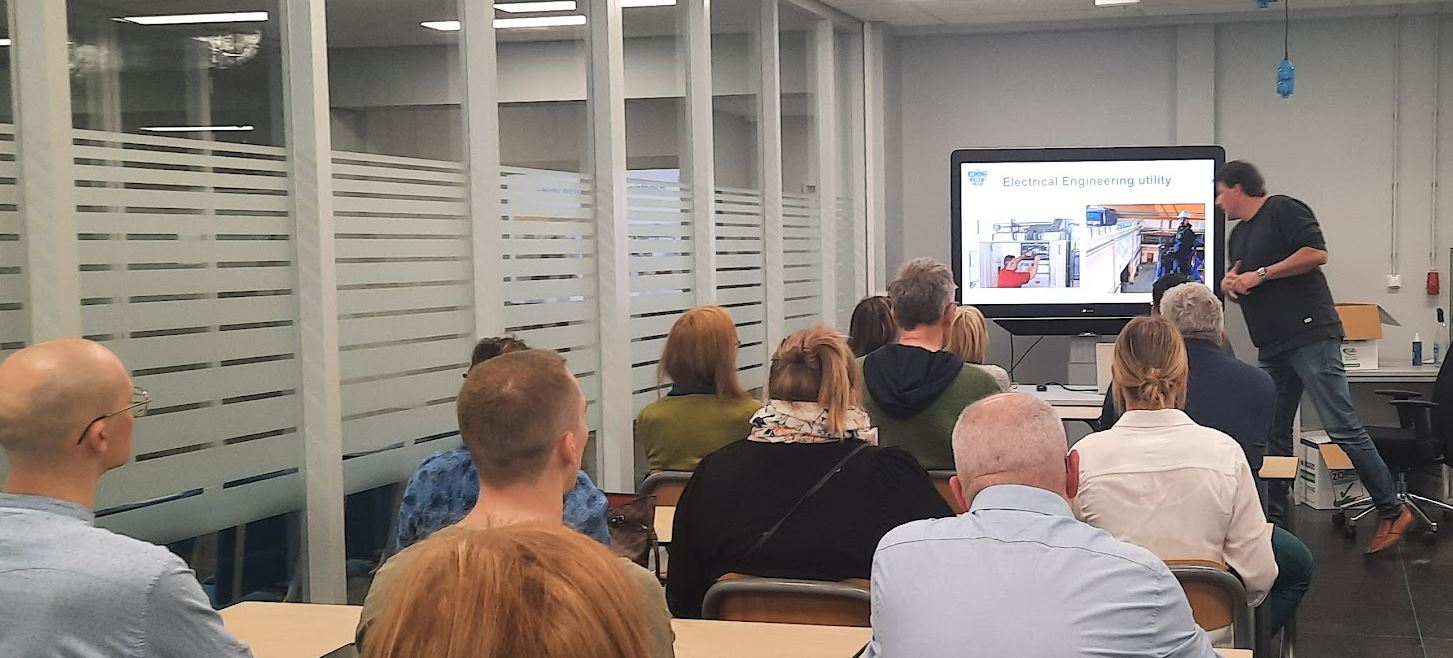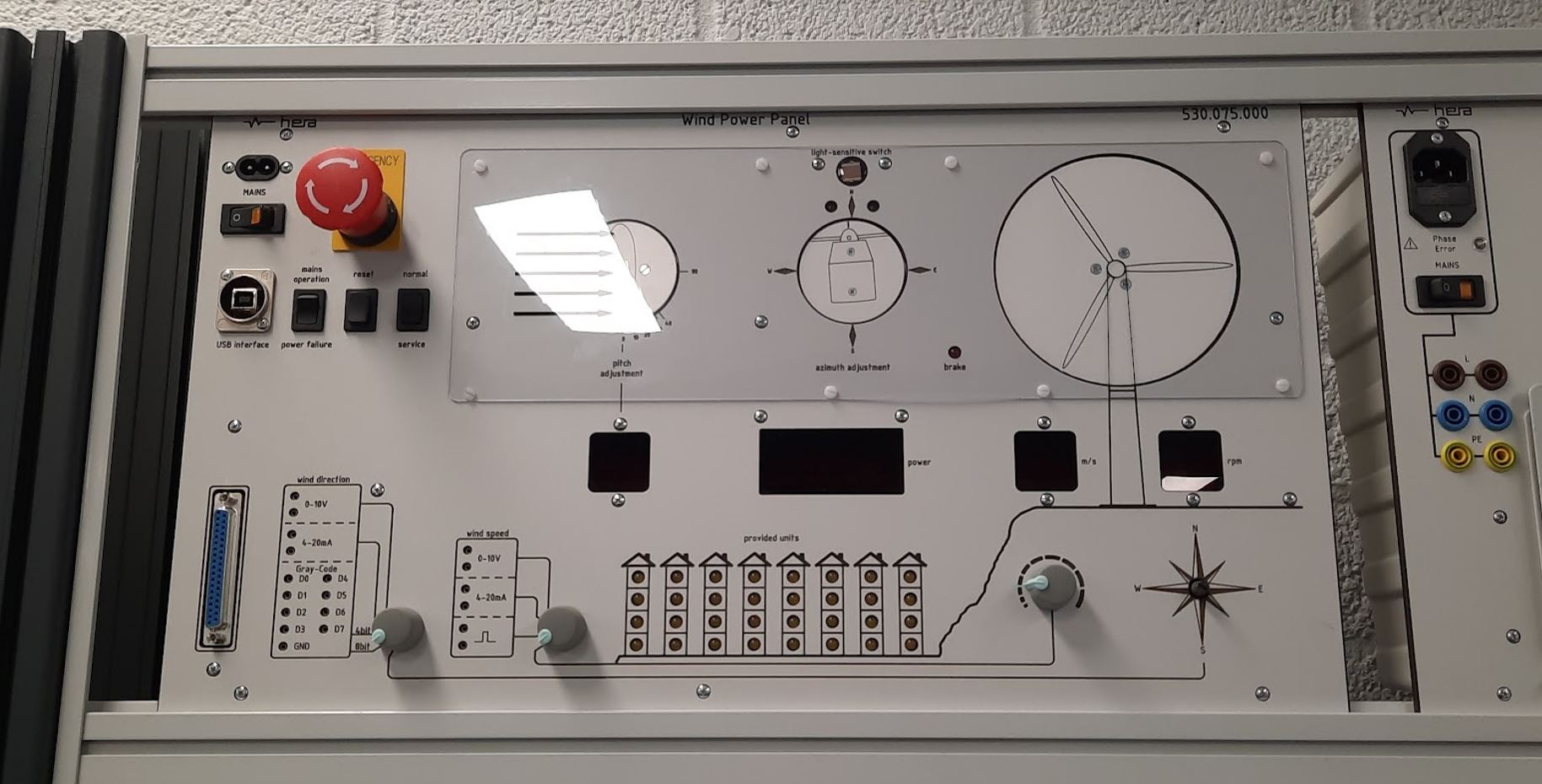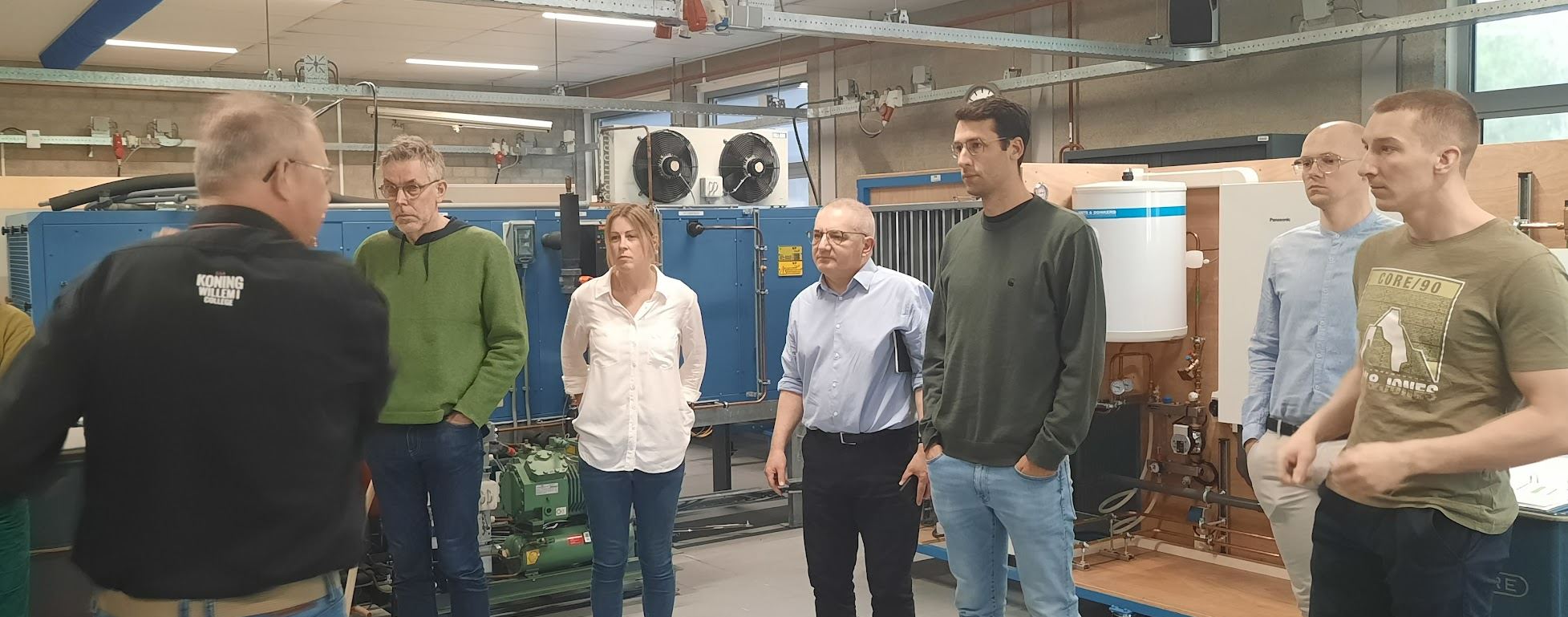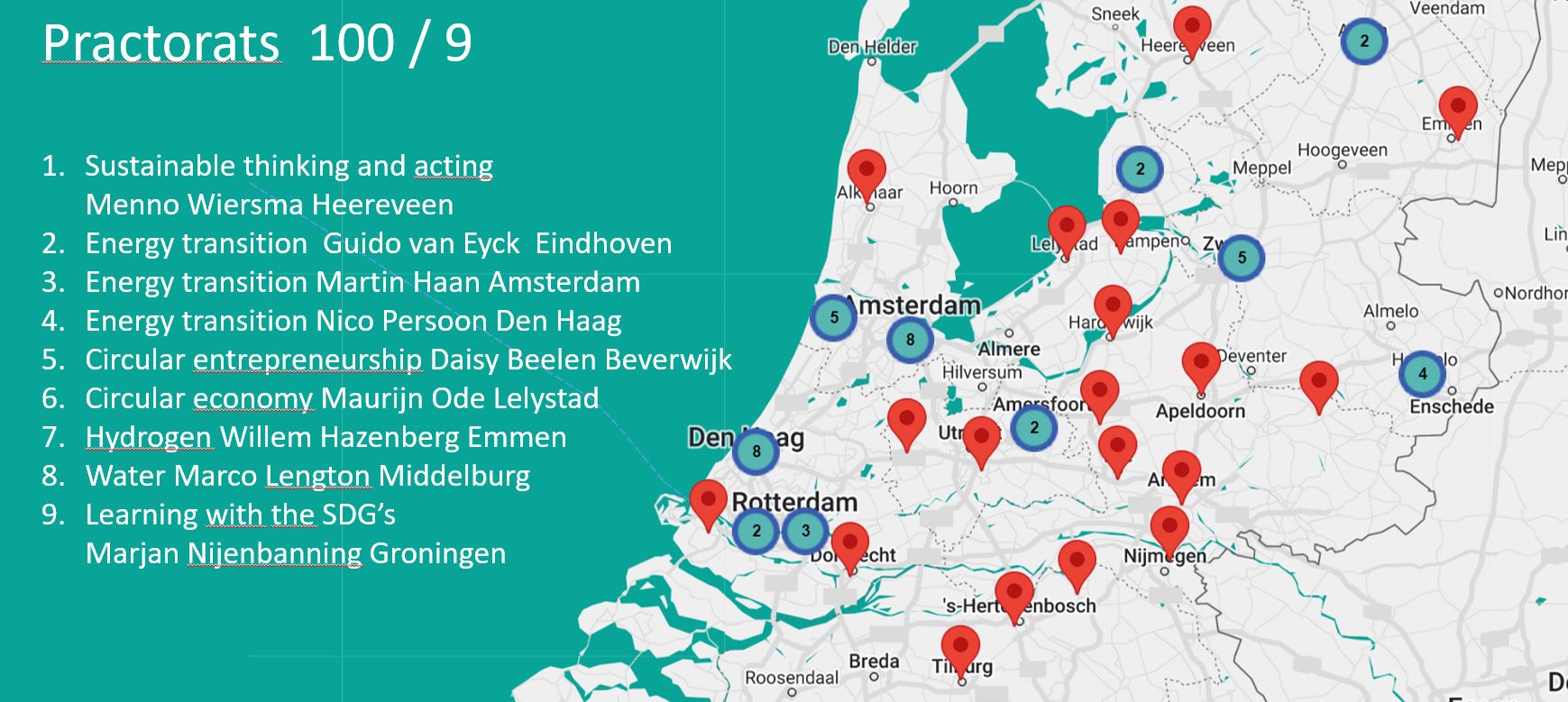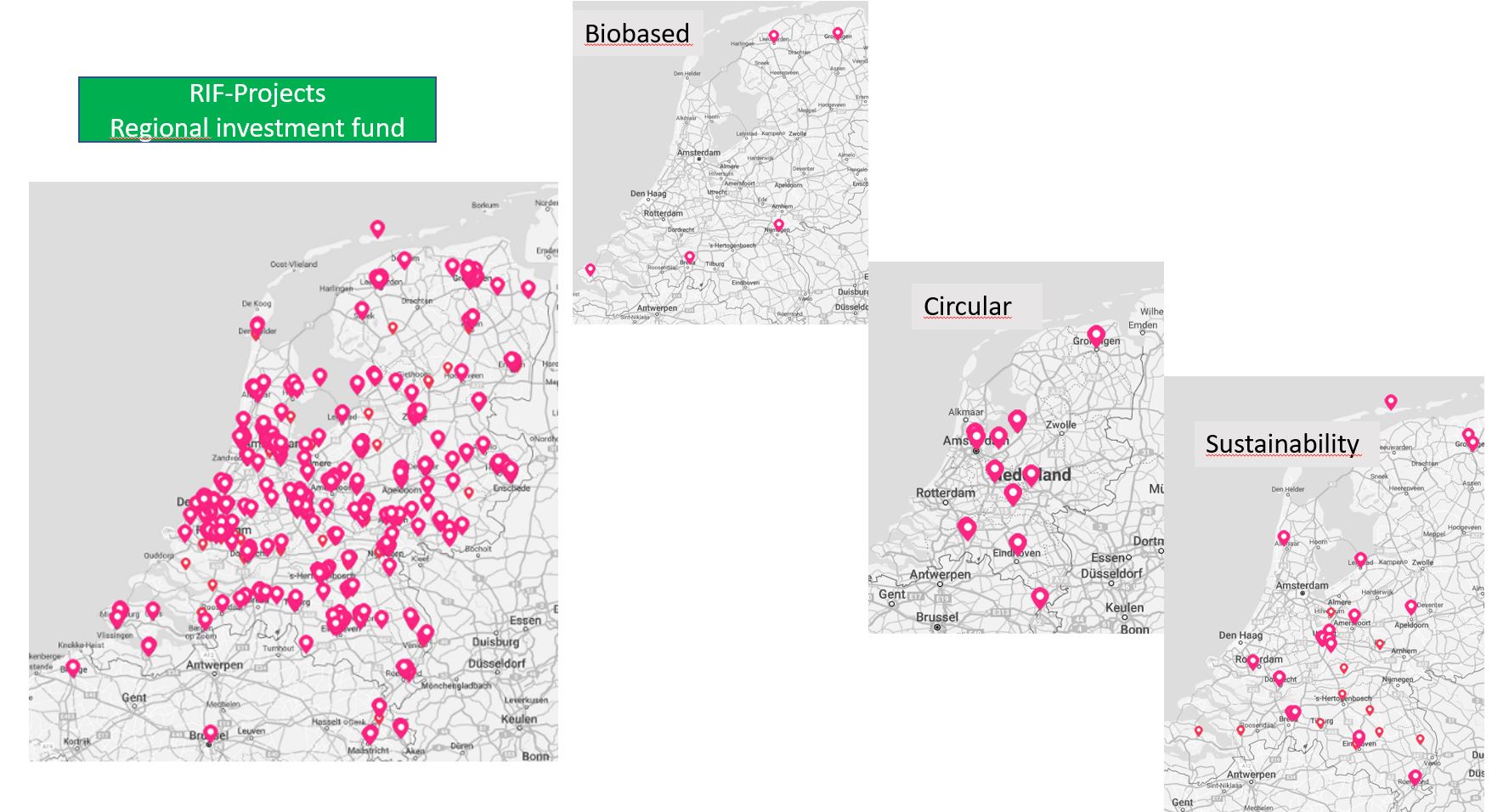Dominique Majoor, the member of the board of directors, explained facts and figures of the Koning Willem I College and their vision with regard to the SDG's. They are the compas of the school.
The presentation can be seen here.
The sustainability coordinator explained about the city and why the school is a textbook example for sustainability.
The SDG's are in the curricula, the pedagogy, the facilities, the knowlegde of the teachers and they work together with society.
They have heat pumps, triple glas, recovery of warmth in air treatment equipments, electrical cars, water taps, attention for biodiversity etc.
You can look at the presentation here.
The building and constructing company Heijmans explained they want to work with our students and they were enthousiastic about the ideas.
They re-invent and reconstruct the electricity network and for that they need a lot of new employees.
The presentation of Heijmans can be seen here.
The director of Technics explained they have 754 students next to 211 at an energy company, 56 at a company in gas and water etc.
Thet are going to start a project on the energy transition of 3,4 million with all the VET schools in Brabant and many partners.
Also an Interreg project of 1,2 million with Vlaanders is approved.
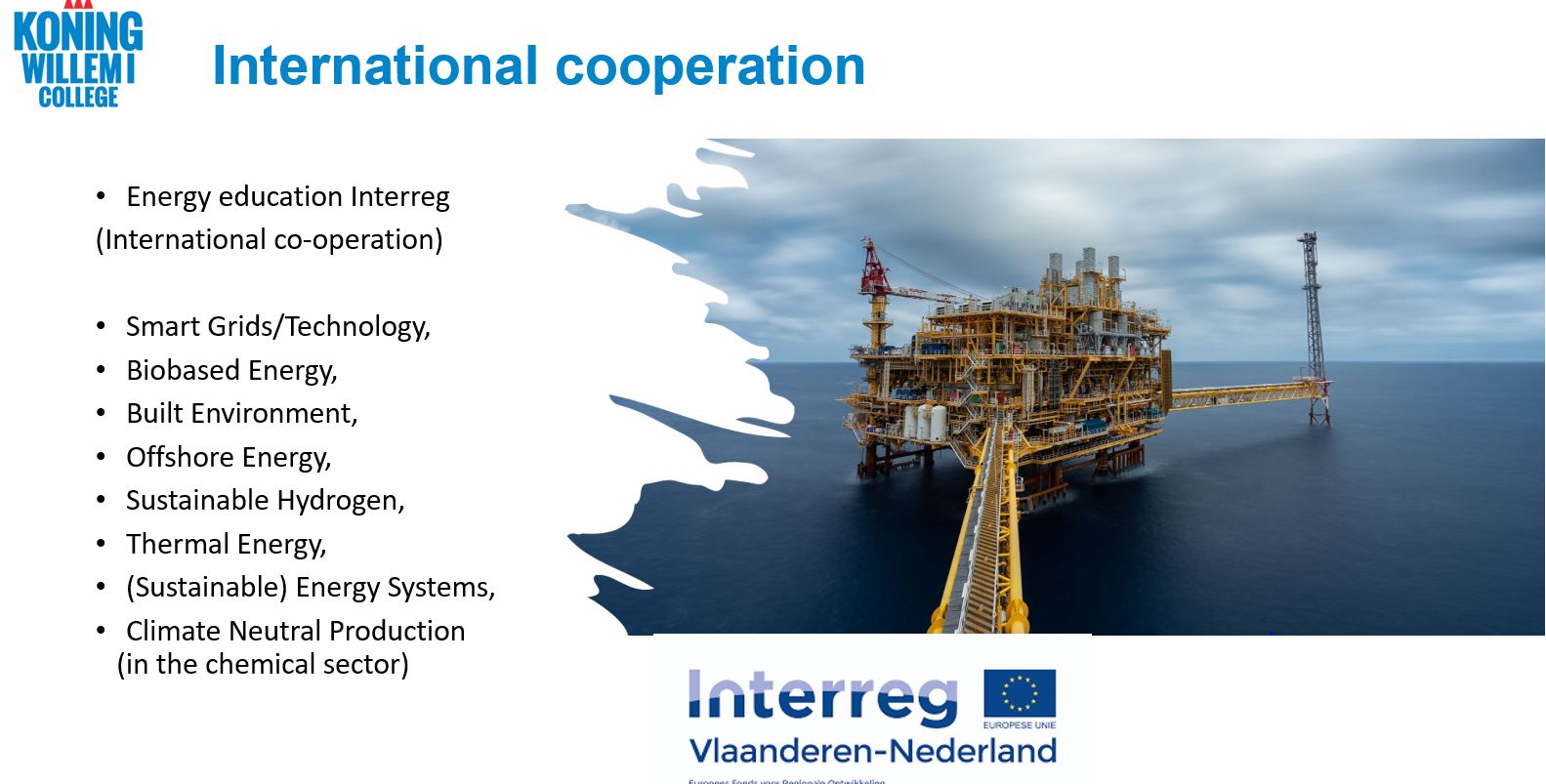
Manfred Polzin of the VET council explained the VET system in the Netherlands.
Dutch Association of 57 VET-colleges (approx. 500.000 students) acts as an employers’ organization. Voice of VET. Intermediary between VET-colleges and government, professional branch organizations, industries and other stakeholders
They also benchmark, figures and advice; promotes innovation and ongoing professional development. Member of EUproVET and EFEE
Around 40% of the graduated secondary school pupils goes to VET. The graduation rate in VET is high 77% vs 46% OECD average. About 50% of graduates in level 4 continues studying at University of Applied Science or Associate Degree (HBO)
Low percentage of Not in Employment, Education or Training (NEET),
Low exclusion rates
There is criticism on the system of early tracking and Lifelong Development/Adult Learning gets
increasing importance.
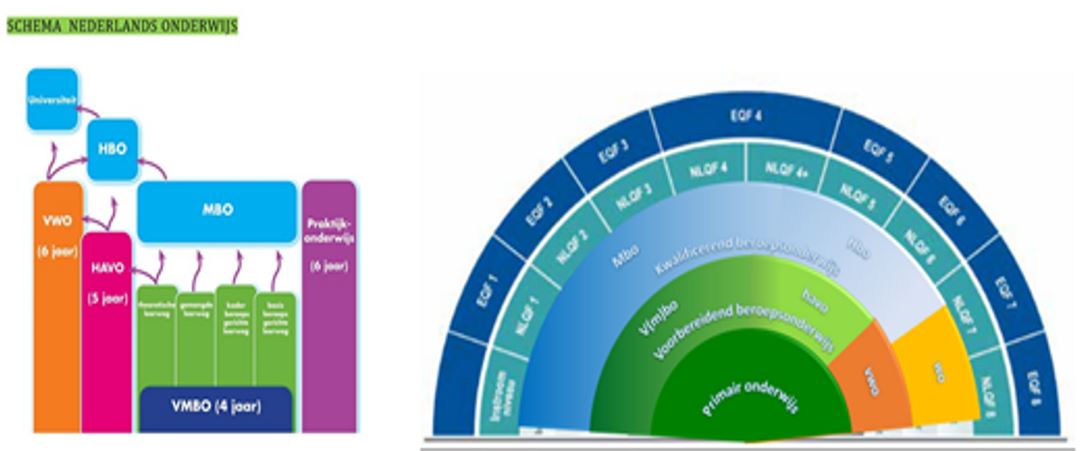
In the Netherlands
Social partners and schools define WHAT and the government decides.
The schools defines and decides HOW Strong institutional autonomy
There is a big differences in size: 300-30.000 students with an average around 15.000
We have two learning pathways, work based (WBL) 120.000 students and school based (SBL) 380.000 students and one qualification structure with possibility of change overs.
The whole presentation can be seen here.
The fashion department carried out a project in which they had tehe task to come op with suggestions how to make the curricula more sustainable.
They came up with a new room with referbished industrial sewing machines, a 3D clothing printer, a clothing swap, better recycling bins for textiles and a prject on natural colloring of textiles with colors our of waste from hospitallity.
The department of hospitality explained how they work with the Dutch cuisine and the 80-20% rule. How they cook with organic vetagebles and mostly from the season and the region. They poor local wine and have a farmer with which they work together closely.
In the talent atelier they showed how they work in multidisciplinary teams on tasks from society including creativity, wroking together and new ways of presenting concepts or models for instance with 3D printing or laser cutting.
The department of building and construction integrated sustainable building and buidling zero on the meter into all their projects and in one project also circularity.
The electronics department showed they have to pay attention to the energy transition because it is in the qualification file.
A panel for experimenting with solar and windpower.
The department of freesing and cooling explained about their heat pumps. Three types.
Air-water, water-water and soil heat-water heat pump systems.
About the energy transition in the Netherlands there are now many initiatives.
It is in the work agenda of the ministry, there are many RIF projects (regional investment projects), nine practors and 20 minors in this field.
For the presentation see here.
